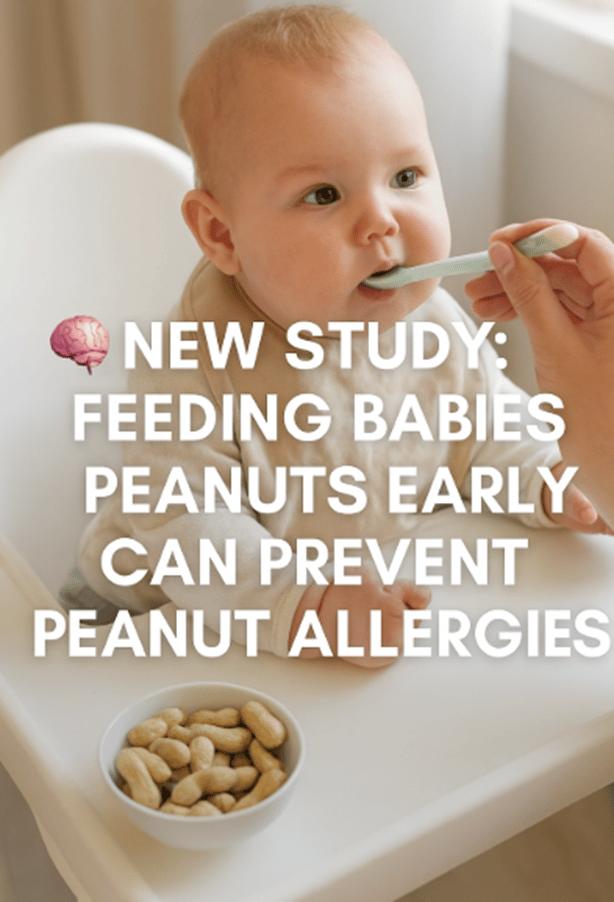- The Supper
- Posts
- Breakthrough Study Reveals How to Prevent Peanut Allergies in Children
Breakthrough Study Reveals How to Prevent Peanut Allergies in Children
New studies on peanut allergy

A groundbreaking study from Northwestern University is reshaping how pediatricians and parents approach peanut allergy prevention in infants. With food allergies on the rise, this research offers a promising strategy to reduce the risk of peanut allergies through early dietary intervention.
Transform Your Bedroom Fun With Legal THC Gummies
Imagine feeling every touch magnified, every kiss electrified, and every encounter intensified beyond what you ever thought possible.
Every. Single. Time.
Made from 100% federally legal THC and delivered quickly and discreetly to your door within days, Mood’s strawberries & cream flavored Sexual Euphoria THC gummies can help ignite your bedroom fun starting in just 15 minutes flat…
Because they’re made with nano-emulsion (rapid-onset) technology, they “kick in” within 15 minutes – transforming ordinary encounters into extraordinary sensual adventures.
The secret? A pleasure-amplifying combination of THC and time-tested botanicals designed to work for ALL bodies (not just men).
“These do what they claim! Ask my hubby. I don’t think he will let me run out of these gems. And they taste really good.” – Deanne D.
Best of all, they arrive in unmarked packaging that won't raise eyebrows – your under-the-sheets activity remains your delicious secret (unless you choose to share it).
📈 Peanut Allergy Rates Have Surged Since the 1990s
According to the National Institutes of Health, only 0.5% of children worldwide had a peanut allergy in 1997. Fast forward to today, and that number has quadrupled to 2%. This alarming increase has prompted researchers to revisit outdated guidelines that once advised parents to avoid introducing peanuts to babies.
🧠 New Guidelines Promote Early Peanut Introduction
The latest clinical findings suggest that introducing peanut-containing foods to infants as early as four to six months old can significantly lower their chances of developing peanut allergies later in life. Despite these recommendations being available for years, many pediatricians have struggled to consistently communicate them to parents during routine wellness visits.
Dr. Ruchi Gupta, lead researcher and professor of pediatrics and medicine at Northwestern University, emphasized the importance of integrating simple tools into pediatric care. “We’ve developed digital prompts and educational handouts that make it easier for doctors to guide families through safe peanut introduction,” Gupta explained.
🛠️ Digital Tools Empower Pediatricians and Parents
The study introduced easy-to-use resources like electronic medical record (EMR) prompts, printable guides, and training videos. These tools boosted pediatricians’ adherence to allergy-prevention protocols from 35% to over 80% in low-risk infants. Gupta noted that combining education with reinforcement is key to turning research into real-world impact.
🌍 Potential for Nationwide Change in Food Allergy Trends
Experts believe that widespread adoption of these tools could lead to a generational shift in food allergy prevalence. Dr. Will Haas, an integrative medicine specialist, stated, “Prevention is always more powerful than treatment. If every pediatrician uses these tools, we could dramatically reduce emergency visits and improve quality of life for thousands of children”.
🔍 What’s Next in Peanut Allergy Research?
Researchers are now tracking infants who participated in the study to see if early peanut exposure leads to lower allergy rates by age two. If successful, this approach could become a standard part of pediatric care and revolutionize how we prevent food allergies in children.


Reply